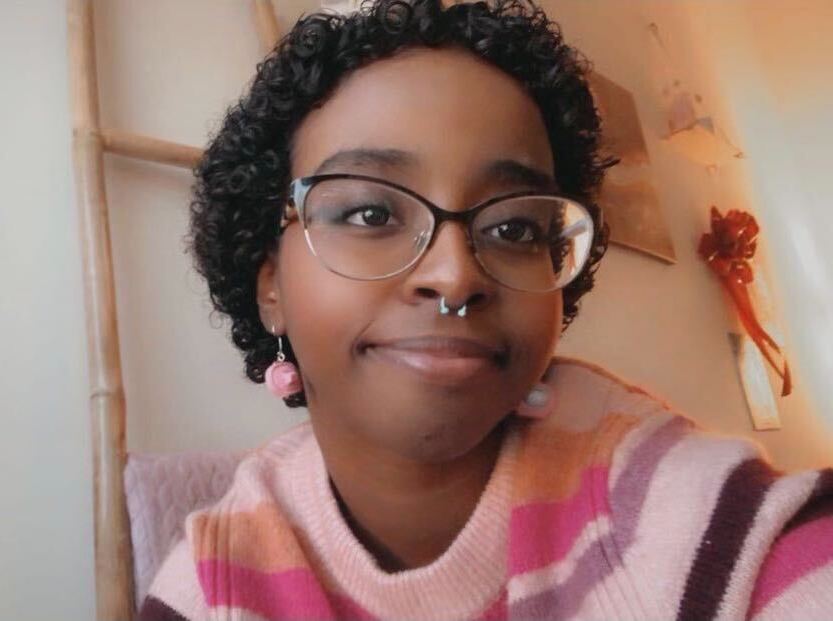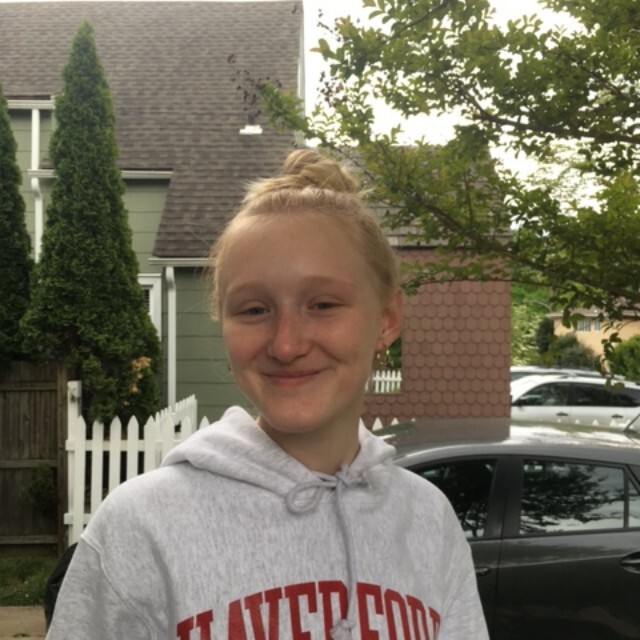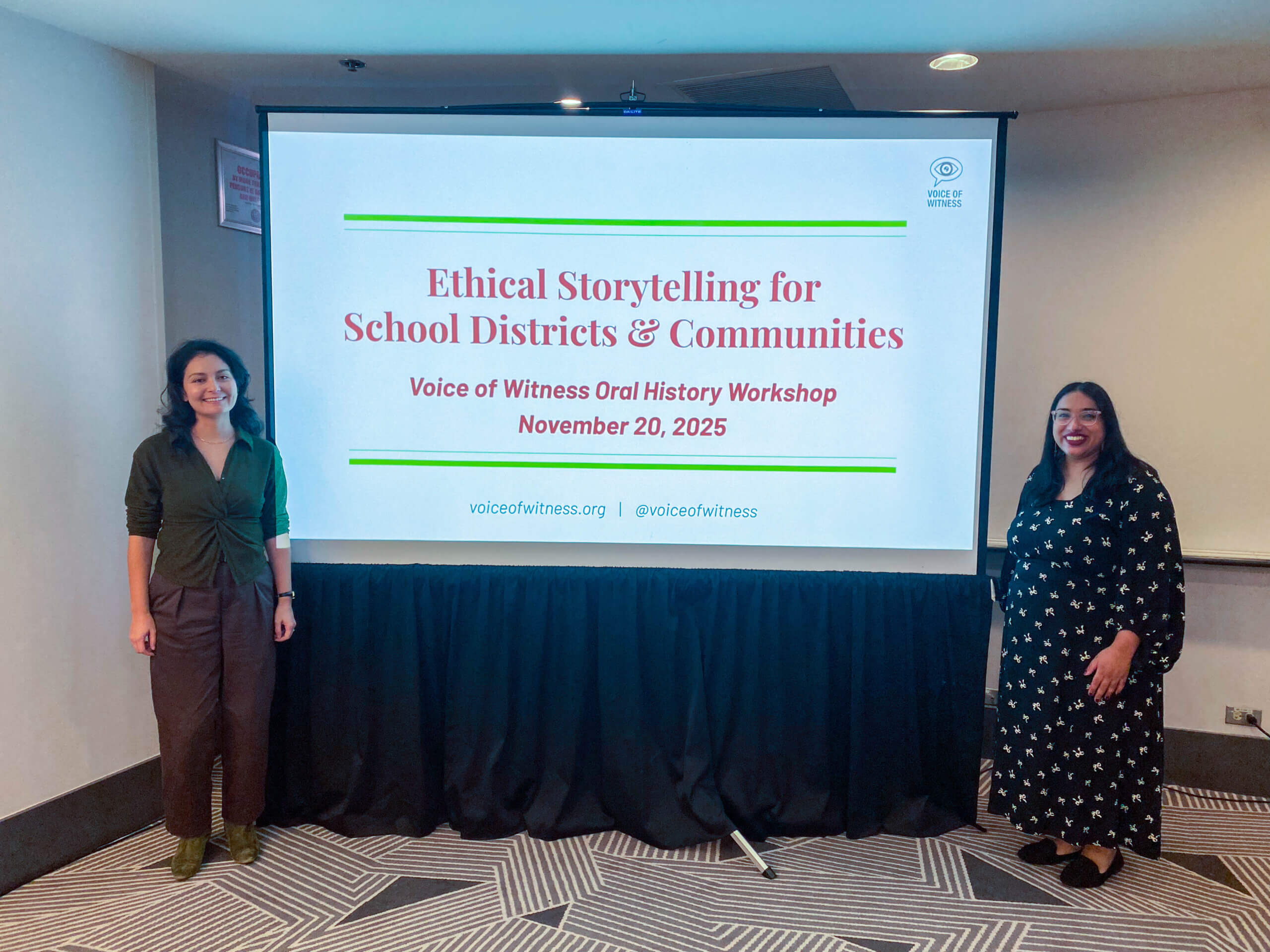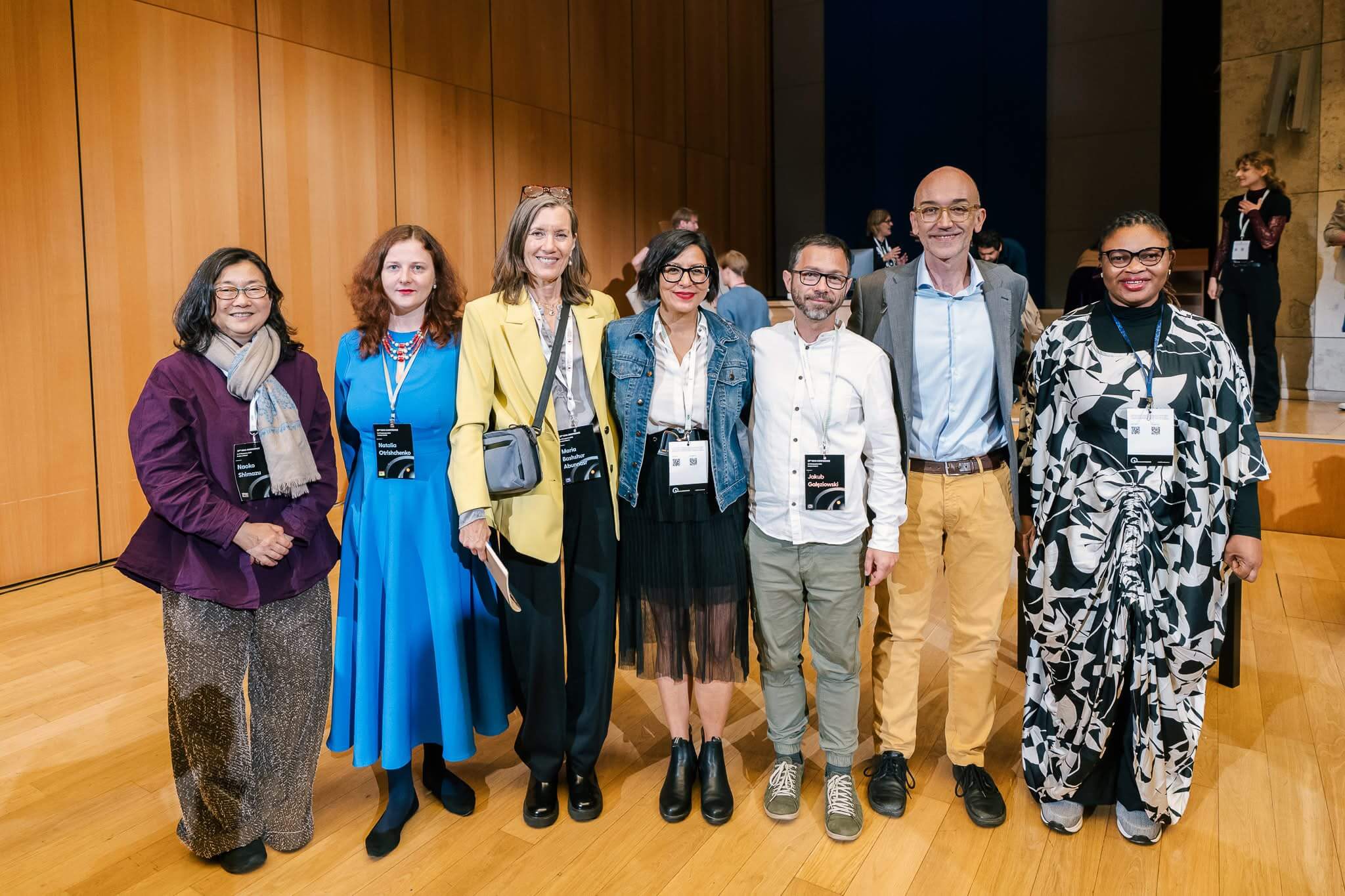Ruaa Elkarim

Ruaa is currently a senior studying Global Affairs at Yale University. An immigrant herself, she finds herself drawn to working with migrant communities and aspires to do so in a nonprofit setting after finishing her undergraduate studies.
When I was a senior at Stagg High School, I took the Voice of Witness (VOW) class. It was a huge decision for me at the time — all I cared about was strengthening my college application and securing my future, and taking a class I knew could drop my GPA was stressful. But I took it, and it was by far my most valuable high school experience. The VOW course helped me become much more patient and understanding with other people, and I learned to always take several steps back before making any judgements about people and their actions. Most of all, the VOW class created a sense of community within our school that I had never felt before, and it was powerful to finally feel like I was part of something.
Approaching the end of my undergraduate career, I felt more and more lost about the path I want to pursue. With my Global Affairs major, I hope to combat human rights violations and injustices in various parts of the world. However, before my internship with Voice of Witness, I found that my perspective had zoomed out. I had become much more focused on addressing social justice and human rights issues on the policy level, and less connected to the individual experiences of the people impacted. Interning with VOW this summer has shown me the value and magnitude of centering members of the community in advocacy work. Change is possible through policymaking, yes. But it also needs to be done through listening to people’s stories, building histories through their experiences, and connecting withcommunities. Enacting policies aimed at helping marginalized peoples without considering their lived experiences ultimately speaks for the marginalized groups rather than amplifying their voices and needs. There is much, much more for me to learn about empathy and the intricacies of the work that VOW does, but the experiences I have had this summer have helped me understand the next few steps I wish to take in my career.
The community within VOW has also allowed me to better understand what a healthy working environment should look like. From the very first staff meeting, Lily and I were treated as valuable additions to the team. We were entrusted with a variety of tasks, such as organizing databases and transcribing and editing narratives. With each task, I felt more confident in my abilities, and more sure of the support provided by the VOW team. Even when making mistakes, I was treated with patience and kindness, in turn helping me become more empathetic with myself. For the second time in four years, VOW has shifted my understanding of myself as a student, a worker, and a person. My time with the compassionate and hard-working VOW staff has been unforgettable, and I am eternally grateful.
Lily Aparin-Buck

Lily is a junior studying Comparative Literature and Peace, Justice, and Human Rights at Haverford College. She is a big believer in the power of stories and has loved working with VOW to support stories that can make change.
After seeing some of the adults in my life feel unsupported and unhappy in their jobs, I decided that my only goals for what I want to do when I’m older are that I don’t want to hate what I’m doing, and I want to help people. Working with VOW, I realized that my future can be much more than that. I can feel truly inspired, supported, and empowered by what I am doing.
One of the biggest things I will take away from this internship is the strong feeling of community that I was able to be a part of at VOW. Voice of Witness is an organization, but it is also, maybe more importantly, a community. I think that is so important. After my first staff meeting, we had “community time” and just talked about movies. I joined into the conversation and immediately felt comfortable and reassured after my nervousness about being in my first staff meeting. It was a moment where we all recognized that we are workers but we are also real people who like to go see movies on the weekends. I hadn’t realized that there were jobs where one’s humanity was intentionally part of the conversation, but that is such an important part of VOW. Recognizing each other’s humanity is one of the main objectives of VOW’s book series, so it makes sense that it is also something that is prioritized, even in staff meetings. I also noticed that staff members were constantly checking in with each other and were never afraid to take a personal day if they needed it. This care for each other is so important, and I think it is something that you are especially likely to see in the nonprofit space, because you can’t help others if you aren’t taking care of yourself. Community care is mutual.
VOW is also a community in that it is part of a network of organizations that work together. Because VOW has so many projects on a wide range of social justice issues, they also have partnerships with many organizations that are doing on-the-ground organizing to combat those issues. VOW recognizes the importance of sharing stories, but they also recognize that combating social injustices requires many different kinds of work, and the work of grassroots efforts is vitally important.
This was also something that I learned in my Peace, Justice, and Human Rights courses at Haverford this year. I was struggling to pinpoint where my place was in fighting injustice in the world, and my professors helped me realize that there are so many different ways to fight injustice, including through education, advocacy, and on-the-ground care. And—here’s the key—every one of those sectors is vital in making change happen. I’ve realized I have to figure out which one of those sectors I can best support with my skills and passions. My work with VOW was an amazing step toward figuring that out. At VOW, I have been able to apply and explore my passion for stories and connecting with others in order to make positive change. Not to sound cliché, but what a dream come true!
Editor’s note: As part of the internship, Lily wrote the following opinion piece on the book banning and educational censorship efforts happening across the country.
Book Bans, Censorship, and Oral History
Many book bans and educational gag orders currently being proposed across the US are discriminatory and unconstitutional. But, some are still being passed into law and having an impact. The largest proportion of books targeted in the bans are those that feature LGBTQ+ characters and themes or characters of color, a direct form of erasure that has the potential to isolate students with those identities. The gag laws also have the potential to silence the expression of diverse viewpoints and limit the discussion of certain histories. Ultimately, they will deny students the opportunity to explore and understand differences and past injustices, leaving them unprepared to become informed, empathetic citizens in our diverse world. Educational censorship will of course also negatively impact teachers and school staff by imposing a sense of surveillance and the risk of punishments, such as losing one’s job or funding.
One possible way to teach truth and center marginalized viewpoints in the face of these laws is the use of oral history narratives. Oral history is an interview-based, first-person method of sharing stories and adding necessary voices to the historical record. Especially in states with book bans, oral history is a valuable way for students to learn directly from people who have experienced injustice. Students can also conduct their own oral history projects, which allows them to share their own communities’ stories.
As an example, Voice of Witness partnered with teachers at Amos Alonzo Stagg High School in Palos Hills, Illinois to create a class centered around oral history work. The class was described by students as a place where they learned to share their stories, listen to others, and, ultimately, “see people for who they are.” This feedback from alums (and a recent evaluation of the course’s impact) shows how oral history teaches students to be empathetic listeners. Oral history projects can be a way to give students the tools they need to remain curious, open, and compassionate learners, even when faced with the stifling effects of educational censorship.
The academic and social pressures of high school can be uniquely isolating, but I’ve learned from Stagg alums and from my own classmates that most students appreciate opportunities to connect with each other, they just aren’t always afforded the spaces in which to do so. Spaces that intentionally foster and prioritize empathy—what folks at VOW would call “safe, brave spaces”—can sometimes be hard to find. When I was in high school, I tried to seek out and foster those kinds of spaces as much as I could, because I knew that I needed it and others did too. My 10th grade Quakerism class (which focused a lot on social justice and service-learning), inter-school diversity conferences, and clubs like Book Club were places that were important to me. If teachers use oral history to create that sense of community and empathy in any classroom, it could have an extremely positive impact on students. It’s more vital than ever at a time when book bans and educational gag orders are erasing necessary and affirming representation from our curriculums.




